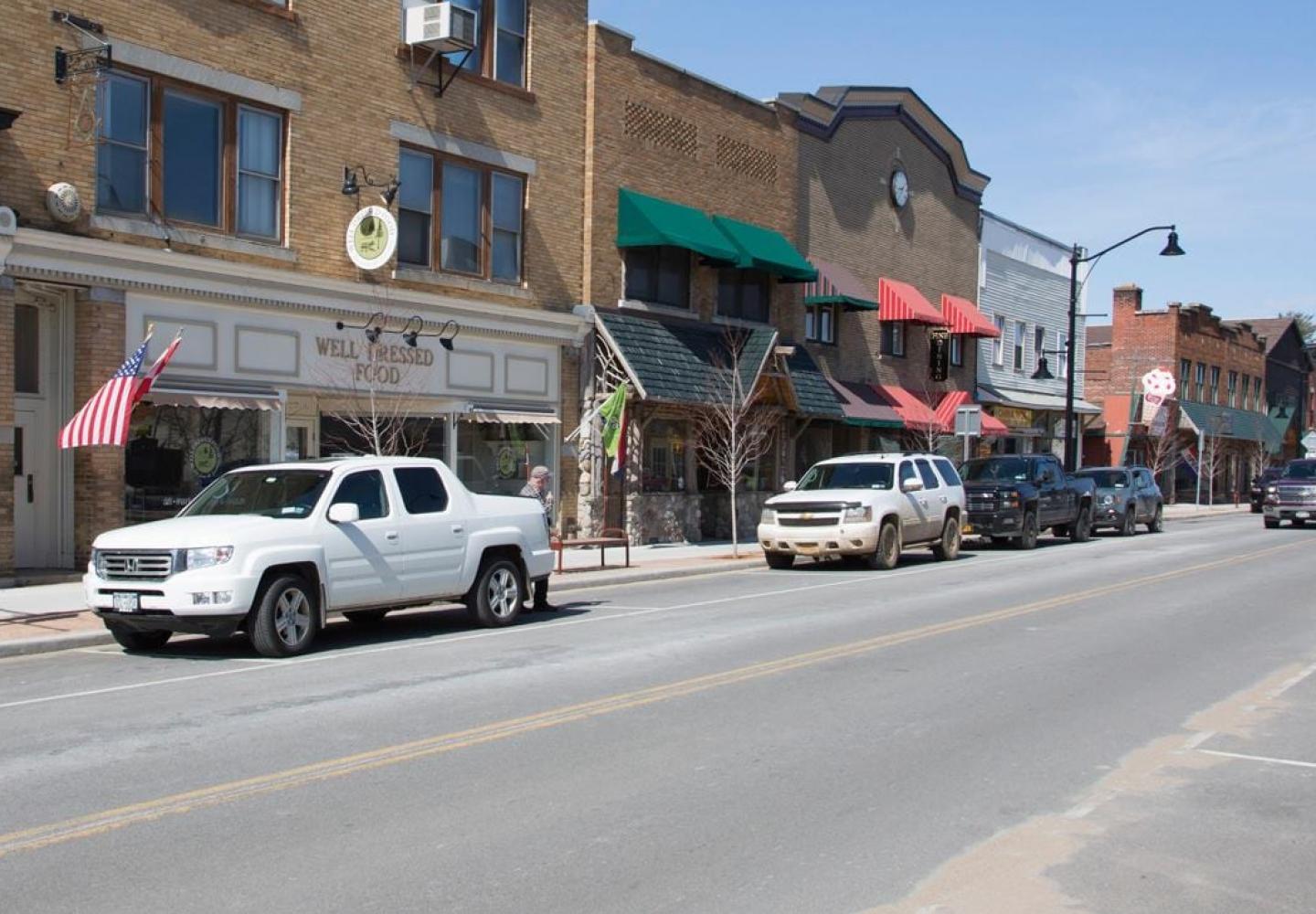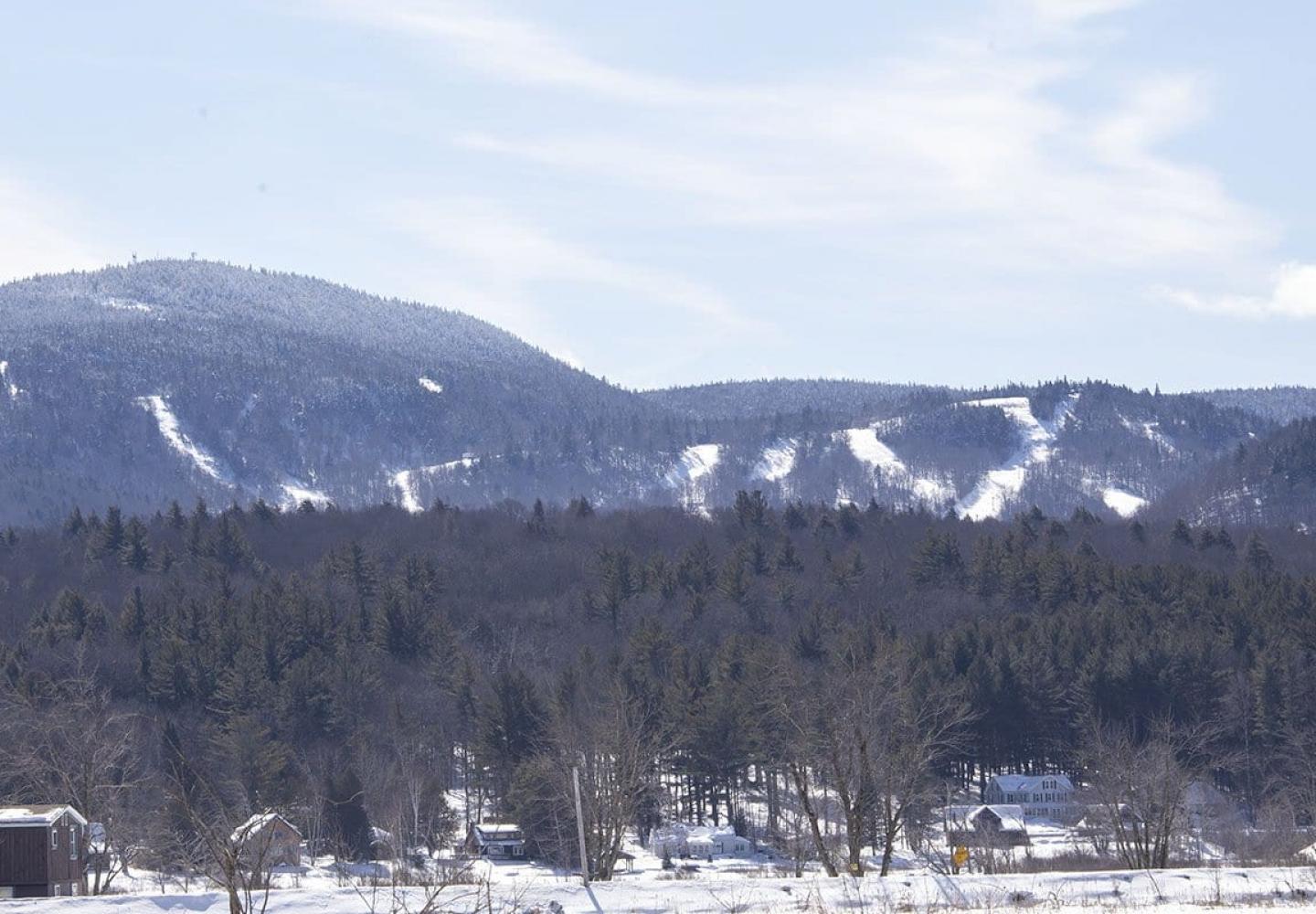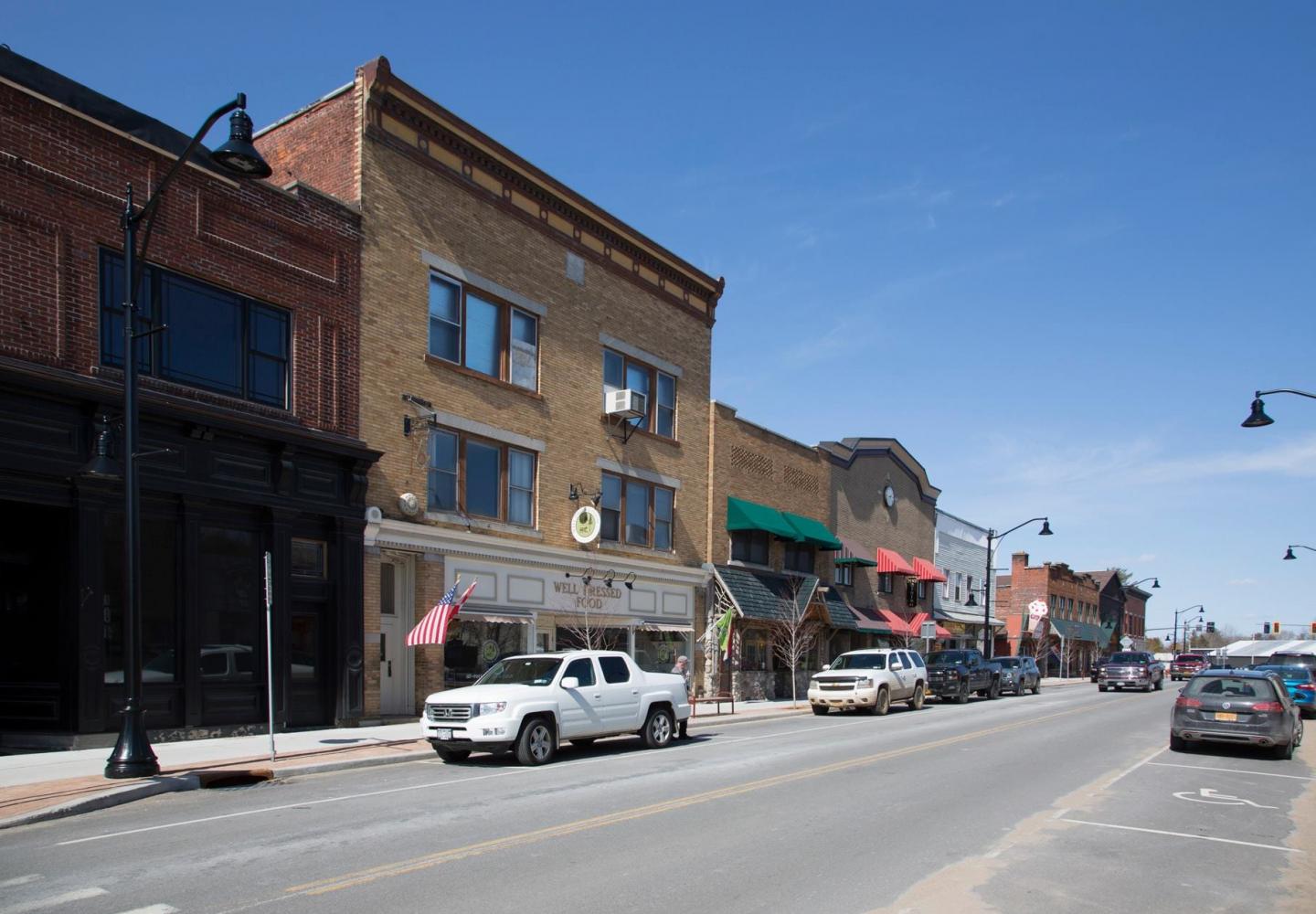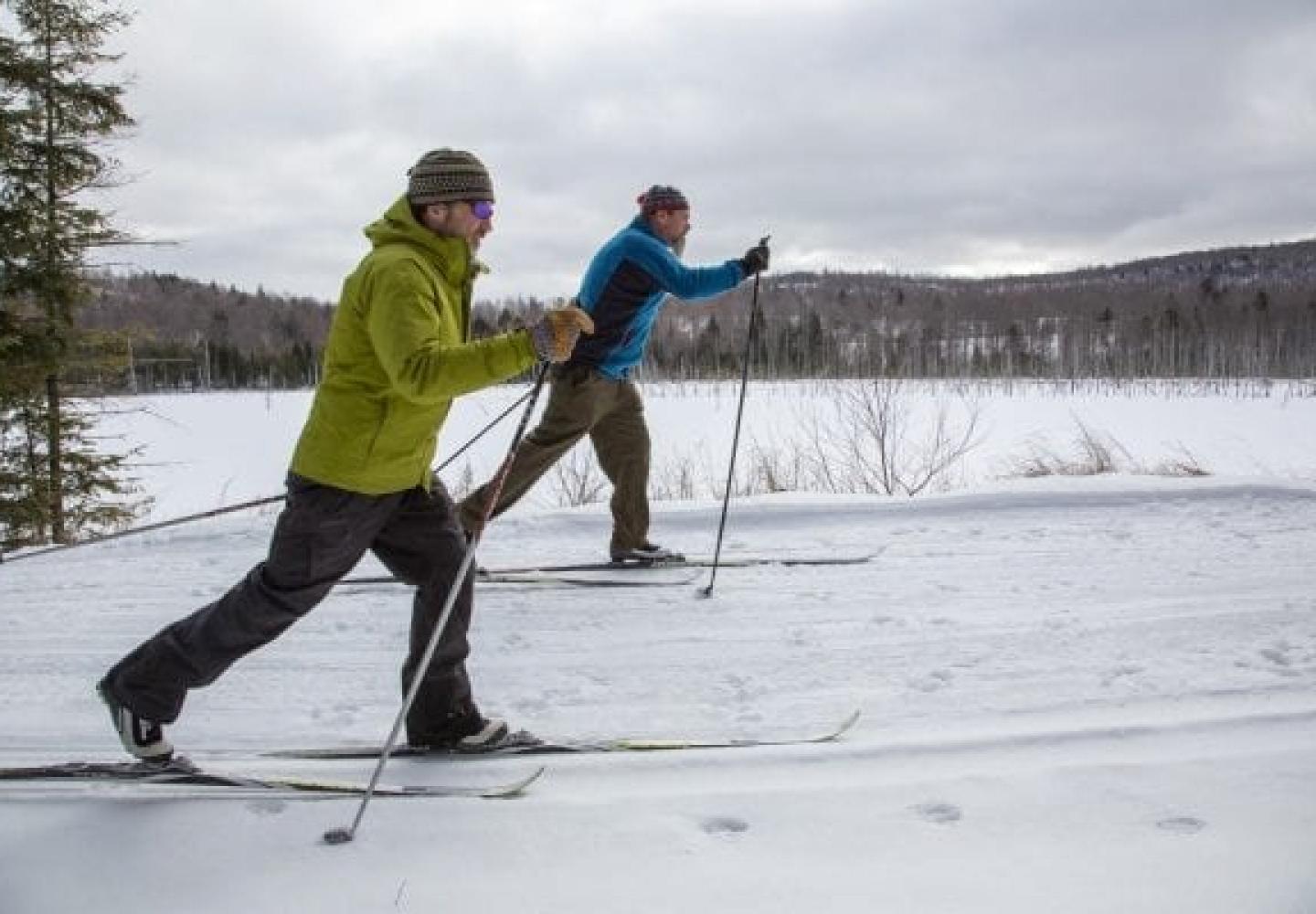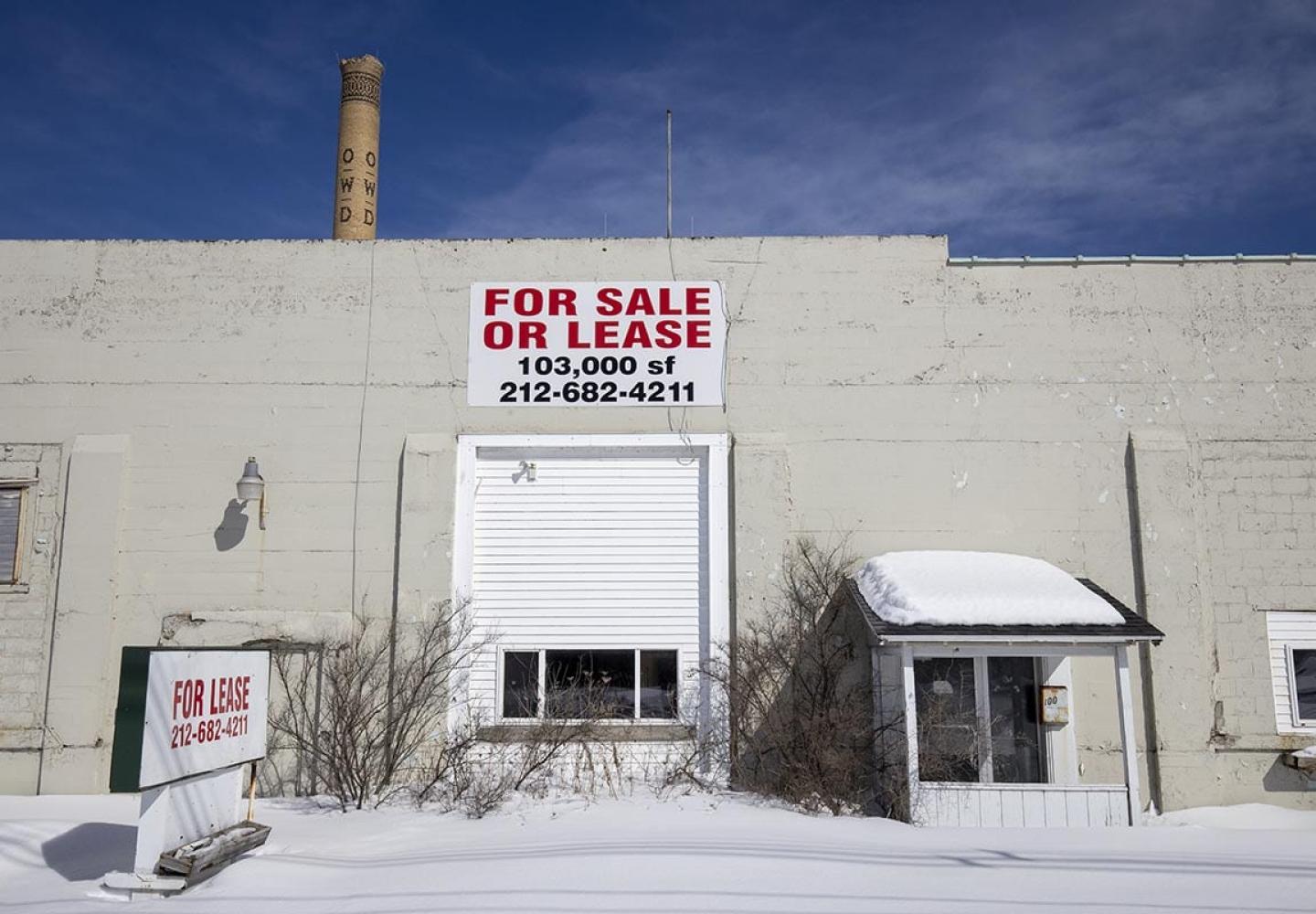Tupper Lake Has Big (Tupper) Plans for Cycling
The following is an excerpt of a story written by James M. Odato for the Adirondack Explorer. You can read the complete story at adirondackexplorer.org.
If Tupper Lake transforms into an outdoor recreational mecca, historians may track the conversion to a welding shop. There, a dozen villagers laid maps over folding tables and marked new paths for cross-country skiing, mountain biking, snowmobiling, golfing and downhill expansion.
“We want Tupper Lake to be Trail Town USA,” said Mark Moeller, a local banker. He is among a group prodding government officials to embrace a series of projects it enumerated during the pandemic. Acquiring Big Tupper tops the list. The alpine center has been dormant for two decades and could be on the auction block later this year.
Called the Tupper Lake Business Group, Moeller and a few collaborators have been meeting since March 2020 to build an argument for $2.3 million in town spending. They organized and brainstormed in a building where vehicles are welded, a meeting place set up at the Tupper Lake Supply hardware store and a local lumber yard complex.
The group has gathered virtually by Zoom in recent months but unveiled plans before live, physically-distanced audiences at a Knights of Columbus hall for community feedback. They conducted a half-dozen Power Point presentations to explain how a series of new trails and improvements — projects big and small — could make Tupper Lake a hub of year-round sporting activities and tourism. They envision the former mill town as a draw for extended-stay visits. The group doesn’t want the mountain to go to public auction.
The owners of Big Tupper, who bought the mountain and another 5,800 acres around it as part of an ill-fated plan for a resort and residential development, owe about $170,000 in property taxes and other fees on the alpine facility alone. The owners’ proposed $500 million Adirondack Club and Resort involved 700 condominiums, vacation homes and luxury great camps and a hotel and has been targeted for foreclosure.
The business group’s plan centers on the ski center. The group sees the mountain as one of several natural assets in the region that could be linked into a network of trails that help stimulate the economy.
Parts of the plan, such as installing bike trails along Tupper Lake’s shoreline in the forest preserve, are more problematic than others. Other components are more feasible, such as improving the municipal golf course and the James C. Frenette Cross Country Ski Trails at the course.
The business group has been appealing for money through crowdfunding to help underwrite the effort and has raised $11,000, said Rick Donah. Donah joined the group after first embarking on a petition drive aimed at getting state government to take over Big Tupper. He gathered almost 10,500 signatures the past year, but abandoned the effort once it became clear that state government was consumed with the Covid-19 crisis and lacked the appetite for assuming more costs.
The group’s goal is to raise $100,000 and get commitments from local companies and citizens to help out with property upgrades. The plan hinges on many things happening, or not happening. If no one pays the outstanding taxes, interest and penalties owed Franklin County, the mountain could be set aside for the town.
Anyone can pay the debt to remove the mountain from the county’s foreclosure process, said Paul Maroun, the Tupper Lake mayor and one of seven Franklin County legislators. He added that it would not be surprising if a party, such as lienholders, came forward to pay the debt.
A simple majority of the county legislature would have to approve the town’s pitch for Tupper Lake to acquire the property without scheduling it for public auction. A judge would also have to agree to give the town first dibs instead of soliciting bids.
Preserves Associates, the proposed developers of the Adirondack Club and Resort, the failed project to build residences and reopen Big Tupper, have been unable to deliver on the vision after years of working out permitting requirements, lawsuits and borrowing arrangements. The development group became crushed by debt and owes creditors millions of dollars. It may lose the mountain and much of the property around Big Tupper it acquired from the former Oval Wood Dish Corp.
Entrepreneurs see potential in the region. The Oval Wood Dish plant building, which was not mortgaged to the resort development group, is targeted for purchase by a Syracuse company that specializes in historic building renovation. Lahinch Group LLC intends to build residences within the plant, Maroun said. Joseph Gehm, owner of Lahinch, said he is awaiting completion of the building purchase before discussing plans. The goal is to market the dwelling to renters, Maroun said.
The apartments would be even more attractive to renters should the mountain become active again for downhill skiing, Maroun noted.
Patricia Littlefield, town supervisor, said the town has had heavy population losses since Big Tupper operated from the 1960s through 1990s. The U.S. Census reported 4,114 village residents in 1990 and 3,443 in 2019. Those who remain hold the mountain dear and share fond memories working or playing there.
“There’s so much sentiment,” Littlefield said. Her letter to the county legislature caps several years of talks between her and the county treasurer’s office about the town’s concerns about the fate of the mountain, she said. Its foreclosure sale could be set in May, she said.
“They know we’re interested in it,” she said. If the town is granted the opportunity to obtain it, the price of back-taxes is affordable, she said. However, the business group’s overall plan to build up the region’s recreational network would cost much more than they expect, she said, because the municipality must pay prevailing wages and would likely have to hire consultants for engineering and planning.
